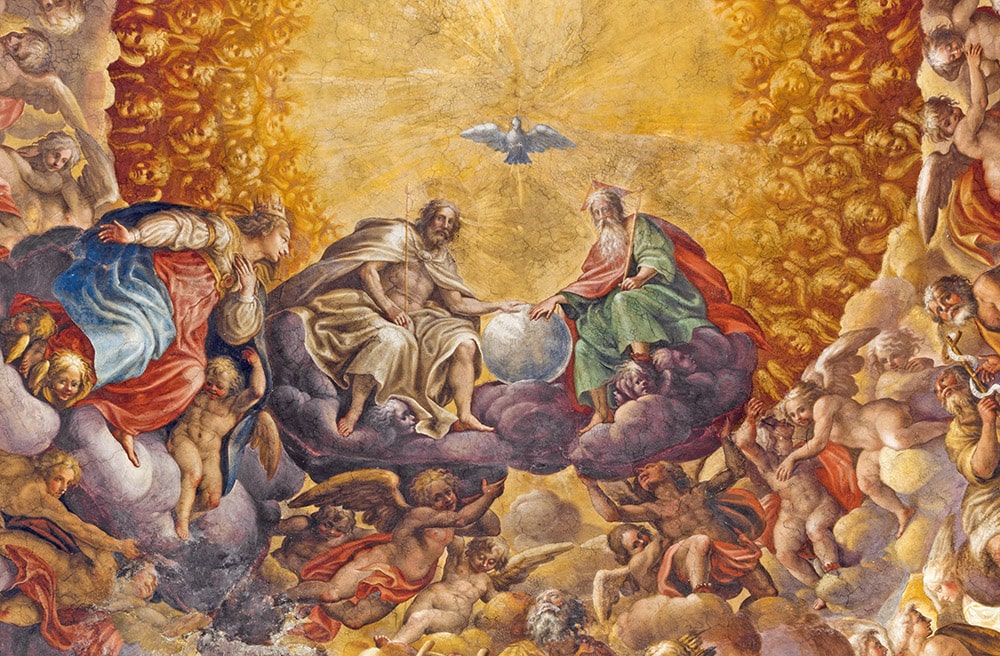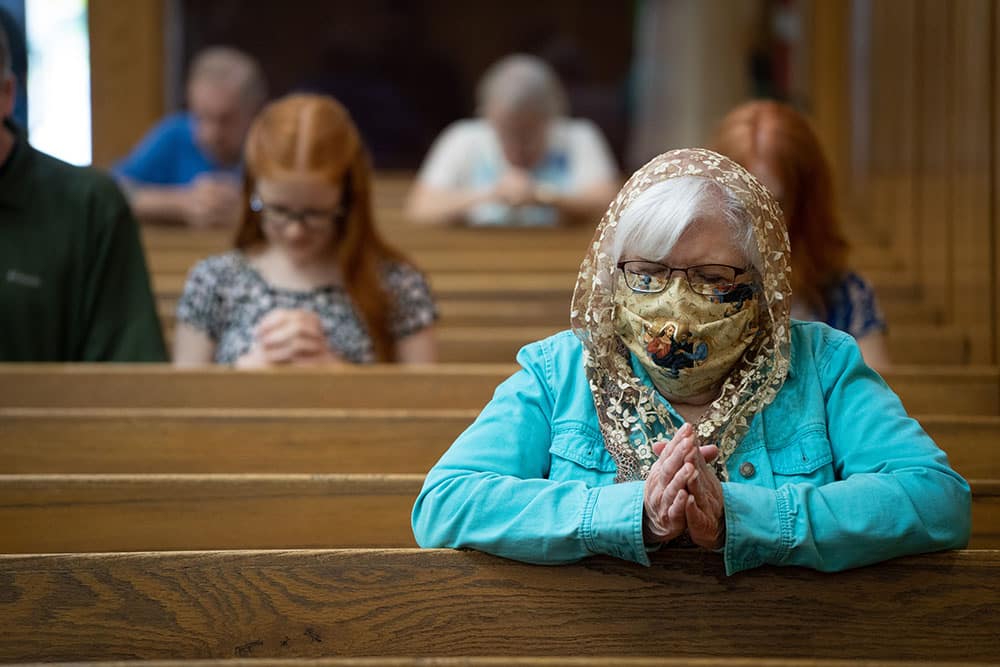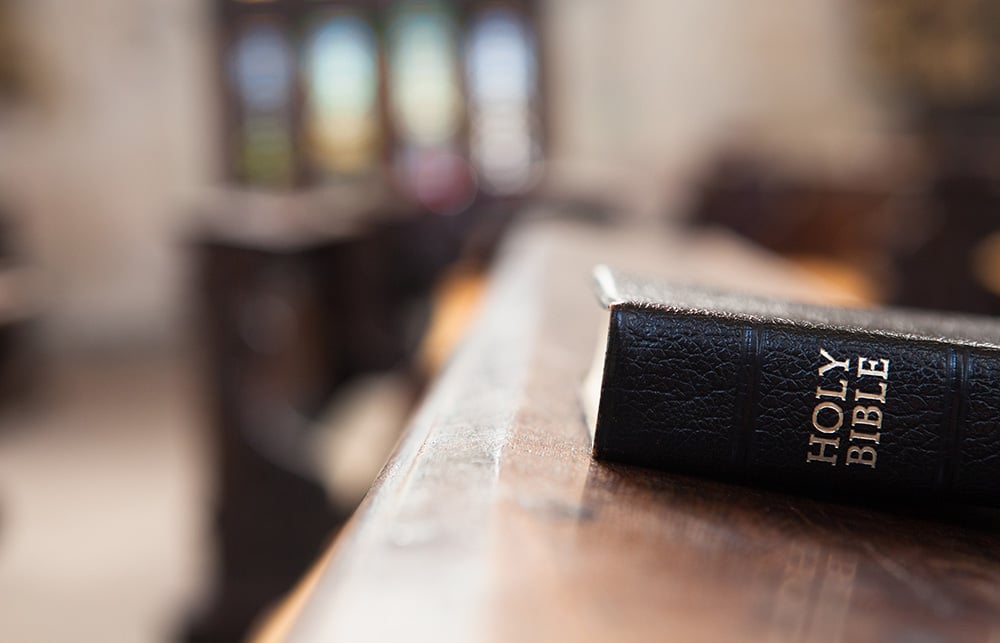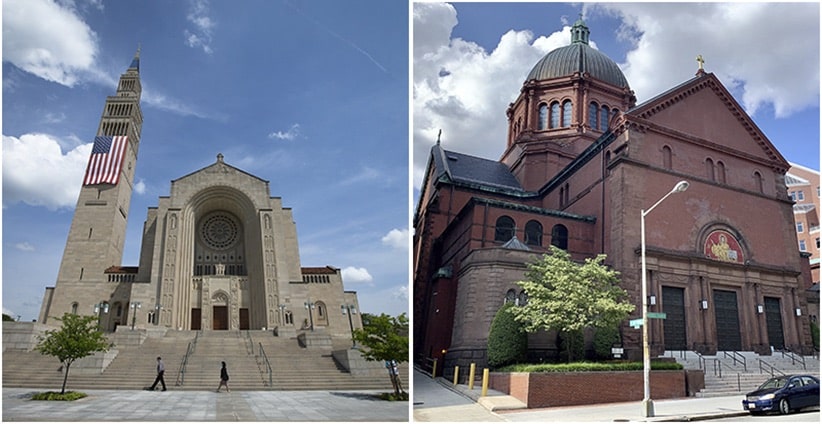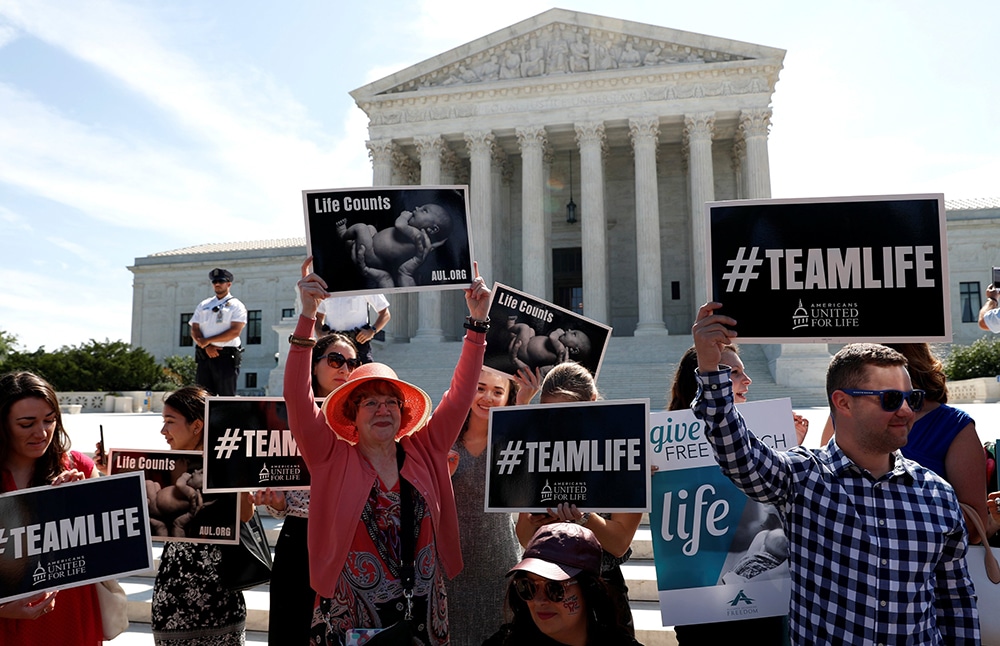 Trinity Sunday has become abstract. Maybe, it is because the doctrine of the Trinity functions as a supreme abstraction by most of those who preach and teach in the Church.
Trinity Sunday has become abstract. Maybe, it is because the doctrine of the Trinity functions as a supreme abstraction by most of those who preach and teach in the Church.
On the one hand, there are those who never mention the Trinity at all, except with a bit of embarrassment on the first Sunday after the Easter season has ended. It is enough to say that God loves us, there is a guy named Jesus in the Bible, and we should pray for the Holy Spirit to inspire us. Language like Father and Son and Spirit — does it really help anyone be a better person?
On the other hand, some preachers and catechists spend all their energy explicating the grammar of the doctrine of the Trinity. How is the Son consubstantial with the Father? What does it mean to speak about the Trinity as three “persons” or hypostases?
The danger of this latter approach is that we lose the narrative, liturgical and thus sanctifying function of the Trinity.
Trinity Sunday is a feast of the Church not because it is an occasion to study a doctrine, employing the proper intellectual tools.
No! It is a feast because of what it means for us to worship God as Father, Son and Holy Spirit.
| May 30 – Solemnity of the Most Holy Trinity |
|---|
|
Dt 4:32-34, 39-40
Ps 33:4-5, 6, 9, 18-19, 20, 22
Rom 8:14-17
Mt 28:16-20
|
At the conclusion of the Gospel of Matthew, the disciples ascend a mountain. At this moment, they see Jesus. And then they worshipped, but they doubted.
What do they doubt?
Do they doubt that the one to whom they bend the knee is Jesus?
No! It seems that they are worried about worshipping Jesus at all.
Jesus recognizes this. He approaches them, speaks to them and consoles them. All power has been given to him. All power on heaven and earth has been given to him.
And then Jesus tells the befuddled disciples, “Go, therefore, and make disciples of all nations, baptizing them in the name of the Father, and of the Son, and of the Holy Spirit …” (Mt 28:19).
We often treat this verse from Matthew as the charter of evangelization. But there is more to it. After all, we are exhorted to baptized in the name of the Father, the Son and the Holy Spirit. To go to the ends of the earth in the name of the triune God.
This is why we celebrate Trinity Sunday. It is not just an occasion to ensure that everyone knows the grammar of the doctrine of the Trinity.
Rather, the God who is a total communion of love, three persons in one substance, longs for every man and woman to share in this communion of love.
The Father, who is the origin of all love, keeping nothing for himself.
The Son, who gives and gives himself in love to the Father.
The Spirit, which is the communion of love shared by the Father and Son.
We who are baptized into this relationship of total communion, of total love, must bring this to the ends of the earth.
For the disciples, those ends were closer. It was Greece. It was Rome.
For us, it is different. Those ends are every place where there is no love, no communion, all bitterness, an economy of scarcity rather than generosity, power rather than prestige. It is the margins, addressed by our Holy Father, the loveless places that too many poor and hungry and thirsty and lonely and suffering dwell in.
Go to the ends of the earth. And baptize men and women. Baptize all men and women into a communion of love that transforms their identifies, that transforms culture, that creates spaces of communion in a world of isolated monads.
Baptize it.
Timothy P. O’Malley, Ph.D., is the director of education at the McGrath Institute for Church Life at the University of Notre Dame.

